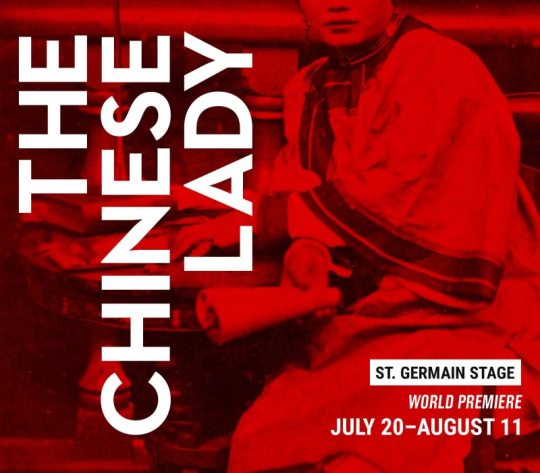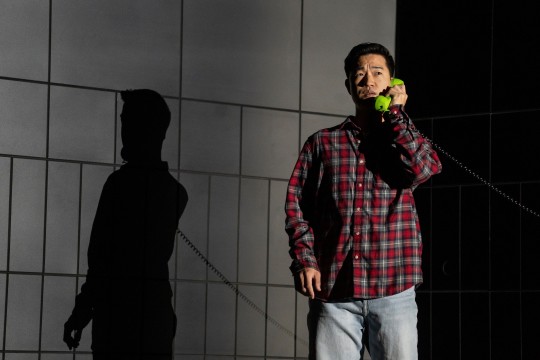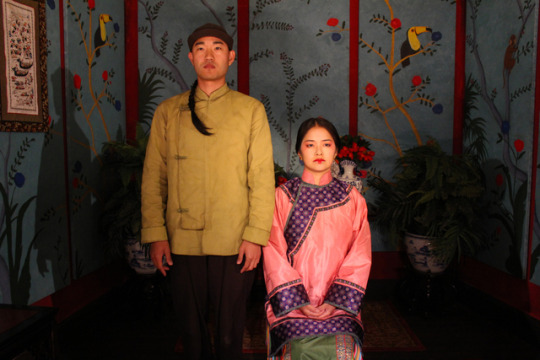#daniel k. isaac
Explore tagged Tumblr posts
Photo

Daniel K. Isaac
Gender: Male
Sexuality: Gay
DOB: 5 December 1988
Ethnicity: Korean
Nationality: American
Occupation: Actor, screenwriter
61 notes
·
View notes
Text

pic from march posted by daniel k. isaac ft. what just might be a happy birthday crème brûlée for will out here
#jotting down what wikipedia claims abt aka trinity cream. virtually identical to crema catalana. more like die acritics#will roland#implicitly:#daniel k. isaac#at last. 2024 birthdayposting lmao
21 notes
·
View notes
Text
REVIEW: "The Chinese Lady" at Barrington Stage
REVIEW: “The Chinese Lady” at Barrington Stage

View On WordPress
#Barrington Stage#Barrington Stage Company#BSC#Daniel K. Isaac#Eloy Garcia#Fabian Obispo#Geoff Boronda#Junghyun Georgia Lee#Lloyd Suh#Macey Levin#Oliver Wason#Pittsfield MA#Ralph B. Pena#Shannon Tyo#St. Germain Stage#Sydelle and Lee Blatt Performing Arts Center#The Chinese Lady
1 note
·
View note
Text
'Every Brilliant Thing' to be performed by Daniel K. Isaac
'Every Brilliant Thing' to be performed by Daniel K. Isaac at the Geffen Playhouse
Rehearsals have begun for Geffen Playhouse’s production of Every Brilliant Thing, written by Olivier Award–nominated playwright Duncan Macmillan (Lungs; People, Places, and Things) with Drama Desk Award, Lucille Lortel Award, and Off-Broadway Alliance Award nominee Jonny Donahoe (Thirty Christmases, Forgiveness). The one-person play features Drama Desk Award nominee Daniel K. Isaac (Billions, The…

View On WordPress
#Audrey Skirball Kenis Theater#Colm Summers#Daniel K. Isaac#Duncan Macmillan#Every Brilliant Thing#Geffen Playhouse#Jonny Donahoe#Theater
0 notes
Text
'You Will Get Sick' Linda Lavin is a Breath of Fresh Air
‘You Will Get Sick’ Linda Lavin is a Breath of Fresh Air
Daniel K. Isaac in You Will Get Sick (courtesy of Joan Marcus) Sometimes the best way to accept the inevitable is to step into the realm of the fantastic and approach the unapproachable through magical thinking and an encouragement toward vacating reality. In You Will Get Sick by Noah Diaz, directed by Sam Pinkleton presented by the Roundabout Theatre Company, the unnamed characters traverse…

View On WordPress
0 notes
Text


also was not expecting it going through a the mysteries actor's fb pics to go "whoa at a nyc event with dki in 2015??" only to then go "whoa at theatre rehearsal or whatever with little baby dki for a college production of cabaret in 2007????"
#truly like just wading through a bunch of [it's someone's 2007 college facebook pics so] only to be like ''!!!''#daniel k. isaac#uscd. no. ucsd university of california san diego....had also forgotten daniel was from california lol like oh yeah#which only increases the What Are The Odds! of it all. not zero. and here we are
3 notes
·
View notes
Text
by Macey Levin
The first Chinese woman to arrive in America was Afong Moy in 1834; she was 14 years old. Her father sent her here after receiving a payment from the Carne brothers who exhibited her in the Pearle Museum in New York City. Afong Moy is the protagonist in Lloyd Suh’s The Chinese Lady having its world premiere at Barrington Stage’s St. Germain Theatre in Pittsfield.
When the audience enters a huge packing crate with the label “China Trading Company” completely fills the stage. The crate is opened to reveal a small room decorated in Chinese fabrics and art. Posed in a chair is Afong Moy (Shannon Tyo) who turns to us to tell her story starting with the year 1834. She is assisted by an aloof translator Atung (Daniel K. Isaac.) She has learned a routine speech she delivers to welcome American gawkers. Each of the many scenes opens in the same manner with much the same speech noting the change in the date as time moves forward.
In her expository speeches she apprises us of the many differences between Chinese and American cultures. Her people use chopsticks, an elegant tool, whereas, she says, a fork is used to stab food, something she doesn’t understand. She describes how the bones in young girls’ feet are broken so that they may be bound, a status symbol of the elite and a mark of beauty.
At first she is flattered and honored to be the first Asian woman in America, too young to realize she is being exploited and is owned by the Carnes. As she ages and relates her experiences, her articulation becomes more relaxed and vocabulary more colloquial (i.e. “Okay.”) She comes to realize, especially when P.T. Barnum buys out the Carnes in 1849, that she is considered a freak and a commodity.
This slideshow requires JavaScript.
As she cites events in American and world history (“Emperor” Andrew Jackson, the Civil War, Britain’s annexation of India, the opium war with China) she also implies her disillusionment with America. When she reaches the age of sixty-two in 1882, she refers to the Chinese Exclusion Act which banned Chinese migration for ten years; it was renewed for another ten years and then became law in the early 20th century. She recites a litany of horrific acts of murder and torture of Chinese-Americans. She regrets that she couldn’t have been more effective in bringing harmony to the two cultures.
Ms. Tyo is charming in Afong Moy’s early years and becomes more and more reflective and harder, evaluating her past actions, as she ages. Without a change in makeup she morphs from the 14-year-old girl to the 82-year-old woman (and even older) in her physical carriage and speech patterns. It is a luminous, delicious performance.
Mr. Isaac’s role is, in some ways, more difficult. The vast majority of his comments are succinct and obedient since he is of a lower class than she and is, after all, her servant. But he is ingratiating and as their thirty-year relationship evolves a mutual respect grows. He has a lyrical monologue in which he tells us what his life is like, of his simple aspirations, of his dreams. It is a touching speech in the midst of a touching portrayal.
Director Ralph B. Pena, working within the limited space of designer Junghyun Georgia Lee’s set dictated by the script, moves his actors gracefully with no wasted movement or time. The slow evolution of the two characters relationship demands our empathy especially with the knowledge that they are worlds apart. The costumes, also designed by Ms. Lee, are traditional Chinese at first and then become more westernized and suggests the different classes of the two characters. Fabian Obispo’s compositions and sound design and Oliver Wason’s lighting immeasurably add to the atmosphere of the production.
The Chinese Lady is a warm delicate play, probably unlike anything you’ve seen before. It will touch your heart, fill your mind and have you remembering this brave woman who learns about life in a world that does not accept her.
The Chinese Lady by Lloyd Suh ; Directed by Ralph B. Pena; Cast: Daniel K. Isaac (Atung) Shannon Tyo (Afong Moy); Scene/Costume design: Junghyun Georgia Lee; Lighting design: Oliver Wason; Composer andSound design: Fabian Obispo; Stage Manager: Geoff Boronda;
Running Time: 90 minutes, no intermission; Barrington Stage Company, St. Germain Theatre, Pittsfield, MA; From 7/20/18; closing 8/11/18
REVIEW: “The Chinese Lady” at Barrington Stage by Macey Levin The first Chinese woman to arrive in America was Afong Moy in 1834; she was 14 years old.
#Barrington Stage#Barrington Stage Company#BSC#Daniel K. Isaac#Eloy Garcia#Fabian Obispo#Geoff Boronda#Junghyun Georgia Lee#Lloyd Suh#Macey Levin#Oliver Wason#Pittsfield MA#Ralph B. Pena#Shannon Tyo#St. Germain Stage#Sydelle and Lee Blatt Performing Arts Center#The Chinese Lady
0 notes
Photo

Barrington Stage Presents the World Premiere of “The Chinese Lady” (Pittsfield, MA) Barrington Stage Company (BSC), the award-winning theatre in the Berkshires (Pittsfield, MA) under the leadership of Artistic Director Julianne Boyd, is proud to present the world premiere of…
#Barrington Stage#Barrington Stage Company. BSC#Daniel K. Isaac#Fabian Obispo#Geoff Boronda#Julianne Boyd#Junghyun Georgia Lee#Lloyd Suh#Ma-Yi Theater Company#Oliver Wason#Pat McCorkle#Pittsfield MA#Ralph Peña#Shannon Tyo#St. Germain Stage#St. Germain Stage at the Sydelle and Lee Blatt Performing Arts Center#Sydelle and Lee Blatt Performing Arts Center#The Chinese Lady
0 notes